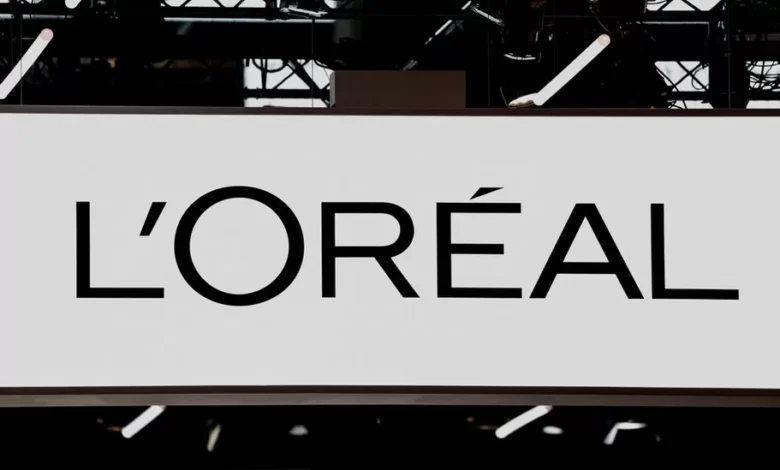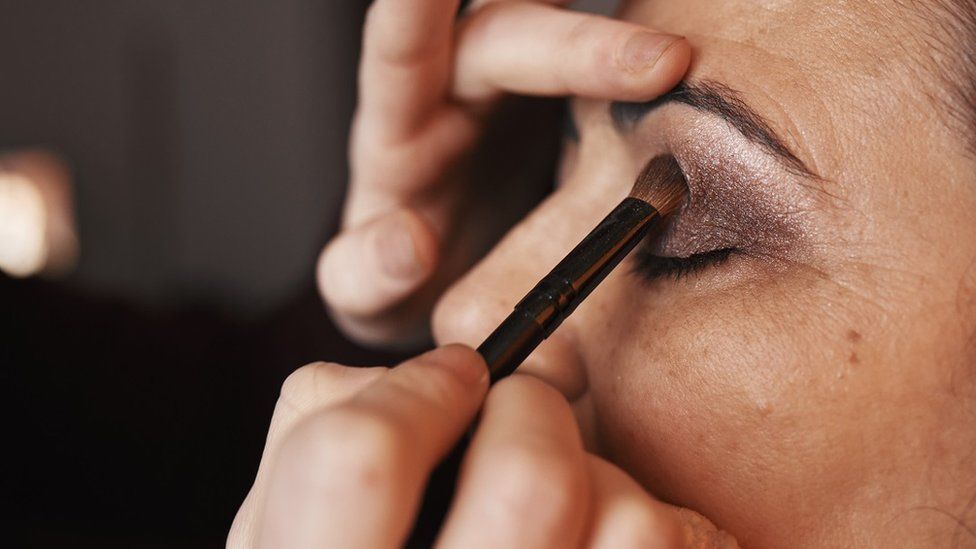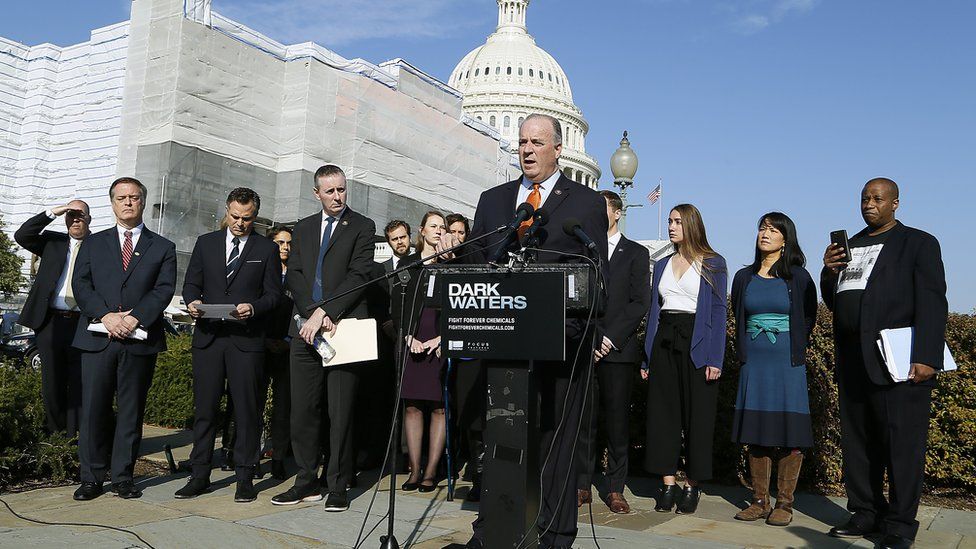‘Forever chemicals’ still in use in UK make-up

Major beauty brands Urban Decay, Revolution and Inglot are selling make-up in the UK containing “forever chemicals”.
These pollutants – known as PFAS – have been linked to serious health concerns including cancer.
They are not illegal in the UK but five European countries are expected to propose an EU-wide ban on Friday.
Urban Decay’s owner L’Oréal, Revolution and Inglot said that they were phasing out the chemicals.
PFAS, which stands for poly- and perfluoroalkyl substances, are resistant to oil and water, making them highly valuable to the make-up industry.
Historically they have been added to products to make them last longer, improve finish and preserve the colour of eyeshadows and lipsticks.
Many brands are now “PFAS-free” because of the increasing evidence of the negative environmental and health impacts from these compounds.
But a BBC News investigation into the UK cosmetics market has identified dozens of products being sold in the UK still containing these toxic chemicals.
High levels of exposure have been associated with cancer, birth defects and thyroid issues.
Research remains ongoing to determine the impacts from lower levels of exposure – such as in make-up – but scientists and politicians are concerned even at these levels because PFAS can build up in the environment.
These substances contain strong bonds which cannot be broken down naturally, so as more products are used and disposed of e.g. by washing make-up off, PFAS begin to accumulate in rivers, soil and have even been detected in human blood.
Studies exposing animals in labs to PFAS found they caused birth defects, damaged livers and newborn deaths. Most of these studies have so far tested doses at higher levels than those usually found in the environment.
Prof. Miriam Diamond, an environmental chemist at Toronto University, whose lab has previously looked at contamination in US cosmetics, told the BBC that consumers should be concerned about low-level contamination in products because of the limited information on the long-term toxic effects.
On Friday, Germany, along with four other European nations, will submit a proposal to the EU to ban the manufacture and use of PFAS over concerns about its accumulation and exposure of humans.

This potential risk led the Environment Agency (EA) to conduct a review into PFAS use in the UK in 2021.
During that review, the EA asked the industry body for cosmetics, the CTPA, to tell it which PFAS compounds were still being used in the UK cosmetic industry and by which companies.
The CTPA told the EA that nine PFAS were in use but declined to share the company names for “commercial reasons”.
The EA did not publish the names of the nine PFAS still in use by the industry in its final report. But a Freedom of Information request by BBC News into the EA has now revealed them. The BBC searched for them in thousands of ingredient lists of the most popular UK brands and common product types known to use PFAS: mascara, eyeshadow, foundation, and lipsticks.
Products produced by Revolution, Inglot and Urban Decay – which is a subsidiary of L’Oréal – were found to contain PFAS called PTFE and Polyperfluoromethylisopropyl Ether. They were being sold across multiple outlets as well as their own websites.
Examples of products included:
- Relove High Key Shadow Palette
- Revolution Power Shadow Palette 90’S Baby
- I Heart Revolution Mini Match Palette Fried Egg Fred
- Urban Decay NAKED Palettes 2
- Urban Decay NAKED Palettes 3
- Urban Decay Smoked Palette
- Inglot X Maura Beautiful Storm Eyeshadow Palette
- Inglot Evening Kiss Eyeshadow Palette
- Inglot Complexion Perfection Essentials Palette Deep
Although PFAS use remains legal in the UK the Health and Safety Executive is now due to publish an assessment for the government of the health risks of PFAS. This follows the EA review and would be the first step in regulating the chemicals.
A group of more than 30 NGOs are now calling on the government to introduce a complete ban on non-essential use in the UK, following in the footsteps of the EU proposal and action by US states such as California.
Risk to rivers
Dr Francesca Bevan, chemicals policy manager at the Marine Conservation Society, which is part of the group of NGOs, said they want regulation because water treatment processes aren’t currently effective at removing PFAS from wastewater, meaning they get released into our rivers.
She said: “Some PFAS have already been linked to health impacts in marine animals such as reduced immune, liver, blood and kidney function in bottlenose dolphins or thyroid hormone disruption in marine birds, and it’s likely only a matter of time for other health impacts to be recognised.”
Industry body the CTPA declined to be interviewed by the BBC on this issue but said in a statement: “The cosmetics industry welcomes any action which will protect the environment and our health from harm.”
They also added they had “been working with the UK Environment Agency for several years to help the agency better understand sources of PFAS chemicals.”
But an email exchange seen by the BBC in late 2022 between senior advisors at the Environment Agency questions the transparency of the industry. In the exchange they revealed that: “We have minimal knowledge of PFAS usage in cosmetics.”

Mia Davis, vice president of sustainability for Credo beauty – which is one of many brands which have prohibited these chemicals – told the BBC that its products show “we can make beautiful make-up without them”.
But Gloria Lu and Victoria Fu, who were previous formulation chemists at major beauty brands and now run their own brand Chemist Confessions which is PFAS-free, said that the industry should be wary of a knee-jerk reaction to certain chemicals like PFAS, as there may be regrettable substitutions where the replacement chemical has not been tested.
L’Oréal said that product safety was its top priority and had in 2018 made the decision to phase out all PFAS. A L’Oréal spokesperson said: “The phase out and substitution plans are well underway and we have already removed PFASs from the majority of our products.”
A Revolution Beauty spokesperson said: “We comply fully with all EU and UK cosmetics regulations and we have already begun the process of phasing out poly- and perfluoroalkyl substances from our products.”
Inglot told the BBC that the PFAS they used was “permitted” but despite this “for the sake of the public’s concerns, INGLOT is conducting research to completely eliminate it”.










